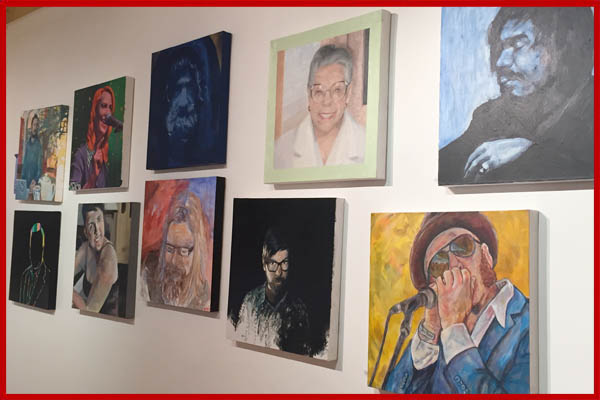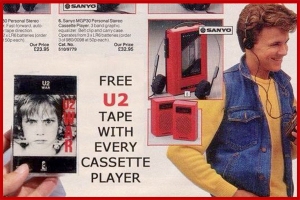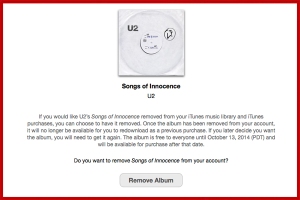“…it’s the knowledge of all the effort, the passion, the thought that goes into creating something original…”

On Tuesday night, the Grace Emily Hotel raised $7,200+ for charity with its 10th edition of the “Bald Clanger” Exhibition. It’s one of my favourite events of the year.
A play on words of the “Archibald” nationwide Portrait Prize, this annual event is an art competition and charity auction, whereby artists of all levels of skill submit their impressions of someone / something that represents the Grace Emily community. They usually get around 30 or so entries.
Bar staff tend to feature heavily, but there are plenty of others honoured in the artwork – you never fail to see some local bands and musicians amongst the portraits. After all, for many people, the venue is synonymous with live music! The winning entry is hung on the pub’s wall, while the rest are put in a public auction. This year, all proceeds are going to Médecins Sans Frontières.

I can see at least 5 local musicians on this wall.
Some of Adelaide’s finest artists are Grace patrons, and always participate in the Bald Clanger. Daryl Austin’s lovely homage to the pub’s name sake, “Grace Emily” herself, fetched over $1000. But something I truly love about the event is that anyone can have a go. $20 buys you a standard canvas (and a bonus pint of ale), and you can paint, write, use mixed media – whatever you want. I believe the youngest artist this year was around 7 years old.
Can’t paint to save my life, but I’ve even summoned the courage to offer up a couple of mixed media entries over the years. And this is where the “music” theme of this editorial comes in…
On auction night, the artists are highly likely to have their original work purchased by someone else – and then it’s gone from their own hands forever. At those moments, it always strikes me how, as musicians, we’re extremely lucky to retain at least a copy of the fruits of our labour.
 The winning entry of Grace publican George, by Kate.
The winning entry of Grace publican George, by Kate.
It’s not necessarily narcissism that creates the desire to ‘keep’ your own work; it’s the knowledge of all the effort, the passion, the thought that goes into creating something original. You expressed all of that for a reason; it’s natural to want to hang on to the moment.
A visual artist doesn’t have that luxury. Their blood, sweat & tears may be forever hidden from their view in a stranger’s house. Now, if you can make reasonable copies of it (e.g. nice prints or something – not just a photo), that’s fine I suppose. But the original piece is by definition one-of-a-kind. What if an author had to relinquish their own novel once it was finished?
What about Michael Jackson owning publishing rights to the Beatles’ back catalogue? Sure, McCartney can still play his own songs (for a price!), and anyone can listen to the recordings, but Sir Paul was apparently “furious” about this situation, and admits it’s not just business, it’s personal.
Perhaps it’s not quite the same thing – giving up rights to your work vs. having someone else own an actual, original physical item – but the feeling of ‘authorship’ would surely be similar.
I’m even slightly uncomfortable at being a buyer in some instances… Three (and counting) of our band’s CD covers have been created from local artist Charlie Roberts’ unique paintings. We don’t just take a photo and use the image; the bonus for us is that we actually buy his paintings – and in the process are getting a pretty kickarse collection of original art! They all have personal meaning to us. As for Charlie, it makes me a little sad that they’re no longer ‘his’ to own… but at least he knows they’ve gone to a good home, and he knows where to find us!
At our house there’s also a drawer full of master recordings, everything from proper studio albums to demos. They should probably be in our fire safe, I reckon, along with all the old photo negatives (look it up, kids) and other precious ephemera. It makes me happy that the collection is there, at any rate, even if we never listen to some of those recordings again.
Authorship, and ownership.
Who knows, maybe it is all a little selfish. But my fellow musicians, when it comes to original art, I still think we’re the lucky ones!
– Dr Elizabeth Reid
Music SA Digital Marketing Manager
Comments welcome below.

 Some even let you leave your own mark on the door!
Some even let you leave your own mark on the door! Who knows? You may find yourself recording with the same mic Paul Kelly once used!
Who knows? You may find yourself recording with the same mic Paul Kelly once used!
















